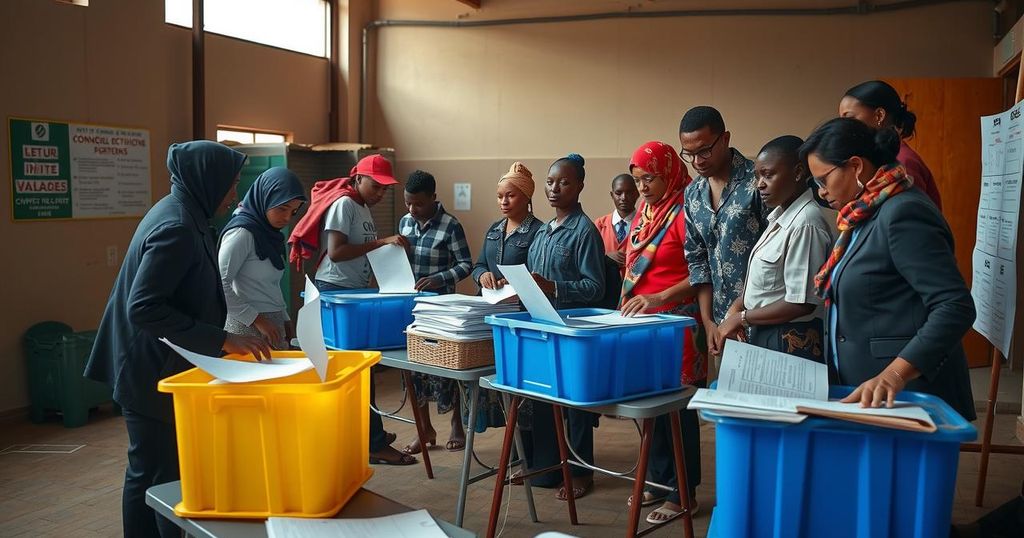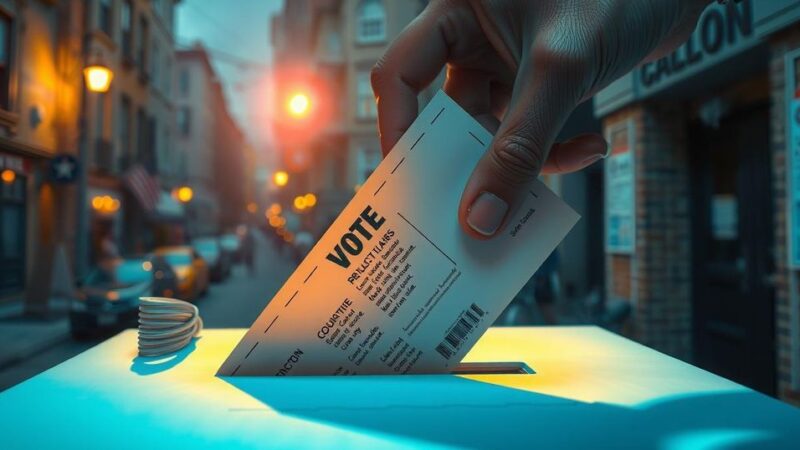Namibia reopened polls after chaos prevented many from voting during elections. The ruling SWAPO party faces fierce opposition amid long delays at polling stations. Technical failures led to public anger, with protests criticizing the electoral process. Opposition parties aim to capitalize on youth discontent. A crucial second-round run-off could emerge between SWAPO’s candidate and IPC’s challenger as citizens demand fair practices.
Namibia reopened polling stations on Friday following a disruption during the recent elections due to logistical and technical issues that left many voters unable to cast their ballots. The ruling South West Africa People’s Organisation (SWAPO) party is facing increasing pressure as opposition parties seek to end its 34-year dominance. Long queues leading to wait times of up to 12 hours resulted in frustration among voters, prompting criticism from opposition groups who labeled the election a “sham.”
The delays were attributed to overheating electronic tablets used for voter registration and a shortage of ballot papers, exacerbated by extreme heat in some regions. On Thursday, the election authority’s unclear communication regarding polling station hours further heightened confusion, leading to protests from citizens demanding fair electoral practices. Approximately 30 demonstrators displayed placards condemning the election’s integrity, with leading opposition figures calling for a cessation of the electoral process due to perceived malpractice.
With approximately 42 percent of registered voters under the age of 35, there is an increasing disconnect between the youth and traditional ruling parties, stemming from high unemployment rates and socio-economic inequalities. This election marks a significant turning point, as a second-round run-off could see the emergence of a female leader; Vice-President Netumbo Nandi-Ndaitwah is competing against the IPC’s candidate, Panduleni Itula, a former dentist and lawyer.
As voting commenced in Windhoek with only one polling station open, voter turnout appeared limited, with individuals expressing concerns over potential delays reminiscent of the previous polling day. Citizens have voiced their discontent with the electoral process, indicating a critical juncture for democracy in Namibia as the country navigates through these challenges.
The situation in Namibia regarding the recent elections reflects a growing discontent among the electorate, particularly the youth, towards the long-standing political hegemony of the SWAPO party. The electoral chaos revealed significant challenges such as inadequate logistical planning and technology failures that prevented many registered voters from participating. This moment comes at a time when opposition parties are gaining traction, particularly among younger demographics frustrated with high unemployment and historical inequalities. The upcoming electoral outcomes may signify a shift in political power dynamics, especially if the opposition is capable of mobilizing these discontented voters effectively.
In summary, the reopening of polls in Namibia highlights the growing tensions surrounding the electoral process and the potential for change in the political landscape as young voters seek to assert their voice against the entrenched SWAPO party. The logistical failures and prolonged wait times have exacerbated frustrations, leading to protests and demands for electoral integrity. The outcome of this election could very well reshape Namibia’s political future, marking a significant turning point in its governance.
Original Source: www.france24.com






